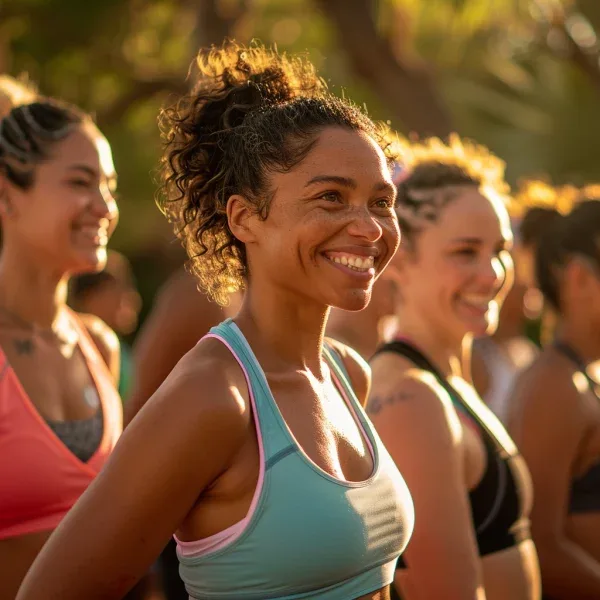by Eliza Sterling

Does your sweat session invigorate you or leave you tired? With wellness centers filling with fervent clientele again, many wonder, is communal physical activity secure? Absolutely! Keeping in shape is indeed a robust strategy for supporting your immune system. Studies have demonstrated that physical activity can serve as a guard against severe Covid-19. Research in a noted medical journal highlights that individuals afflicted with Covid-19, with a recurring inactive history in the last couple of years, were more susceptible to hospitalization, intensive care, and worse outcomes than those consistently active.
The Power of White Blood Cells & Exercise
Regular exercise invigorates your blood flow, allowing millions of white blood cells to move through your bloodstream more efficiently. This upgraded movement heightens your body’s surveillance mechanism for identifying and combating harmful microbes, explains an Emeritus professor of Exercise Biochemistry.
Regular workouts have an anti-inflammatory effect too. Most importantly, it helps in mitigating inflammation, a significant concern during Covid-19 infection. Conversely, those with sedentary lifestyles and obesity suffer from chronic, low-grade inflammation. This state primes your body to over-respond to infections and tissue damage, a reaction most undesirable during a Covid-19 infection.
Returning to Exercise after Covid or Vaccination
Are you returning to aerobics after Covid or inoculation? Follow these simple yet important pieces of advice:
- Hold off on any physical exercise until symptoms entirely subside.
- Begin with light exercise, maintaining your heart rate under 120 BPM for 30-45 minutes.
- Gradually elevate your workout intensity, while keeping your heart below 150 BPM for 30-60 minutes.
- Slowly intensify your workout by no more than 15 minutes per session.
- If symptoms reappear, stop exercising immediately.
Is There a Negative Impact of Exercise on Immunity?
Studies point out that healthful, moderate exercise can significantly lower the risk of falling sick. However, extreme workouts, such as marathon training or excessive cardio, could do the opposite. Foremost, they elevate chances of upper respiratory tract infections (URTIs), common illnesses amongst seasoned athletes.
Intense workouts, severe training plans, and recurrent races can diminish the body’s immune response. Light to moderate fitness regimens have slight impact on immunity, in fact, they are generally beneficial. Exercising for extended durations at high intensity may leave individuals vulnerable to diseases.
Considerably strenuous physical activity, like endurance event training, can suppress natural killer cell activity and can significantly increase psychological stress.
Hormonal Impact on Health and Fitness
Mental stress raises cortisol levels, a stress hormone that, combined with adrenaline from exercise, can hinder white blood cell functionality, leading to impaired immunity. Post-race, your immune system should resume full strength within a brief window, usually 24 hours. After any extreme endurance event, your immune system is typically susceptible to infections for a day or two, so plenty of sleep, balanced nutrition, and rest are vital.
Keeping Your Immunity-up While Exercising
The perfect exercise regime for a healthy immune system isn’t precisely cut and dry. Here’s how to balance your workout to support your immune health:
- Outdoor exercisers: Carbohydrate intake plays a key role in refuelling your immune system. Around 40g of carbohydrate per exercise hour helps maintain blood sugar levels and reduce stress hormones, limiting any dip in your immunity.
- Team sport players: Most team sports involve sporadic high and low intensity movements, which have a less detrimental impact on your immunity than continuous high-intensity exercise. It’s crucial to avoid contact with unwell teammates and not to share personal items.
- Gym enthusiasts: Heavy resistance work is not detrimental to immunity. In fact, recovery periods between sets could uplift your immune system. Hygienic practices, like not touching your face while exercising, cleaning sports gear, and avoiding shared toiletries can help prevent unwanted illness.
Remember, working out effectively is all about finding the right balance between keeping fit and maintaining your immune health. That’s the sweet spot for a healthier, brighter you!
strong immune system, exercise benefits, physical activity, Covid-19 prevention, fitness guidelines, healthy lifestyle, immunity boosting, workout routines, outdoor exercise, team sports, gym practices
Leave a Reply